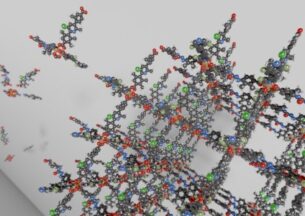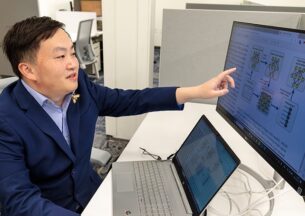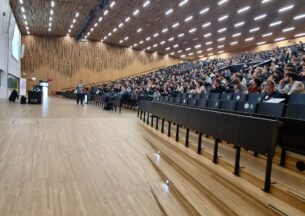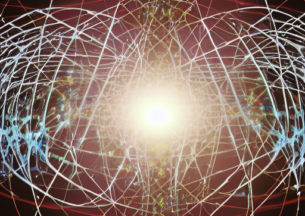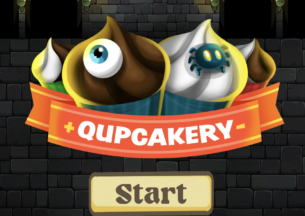IBM and University of Chicago Collaborate to Advance Quantum Computing
A new research collaboration between the Enabling Practical-Scale Quantum Computing (EPiQC) project led by the University of Chicago and IBM will help bring the promising future of quantum computing closer to the present by sharing resources and training the next generation of quantum computer scientists.
EPiQC is a multi-institutional effort led by researchers at the UChicago Department of Computer Science and funded by the National Science Foundation with the goal of shortening the timeline to practical quantum computing. By targeting software to specific technologies, EPiQC will significantly reduce the size and reliability needed for quantum machines to run useful programs.
Through this collaboration, EPiQC will collaborate with the IBM quantum computing initiative, IBM Q, on new software that optimizes IBM’s superconducting quantum technology. EPiQC researchers will receive priority research access to IBM Q technologies and data to develop and test new quantum software systems.
“Quantum hardware is advancing rapidly, but quantum software will be critical to efficiently using that technology and realizing the potential of quantum approaches in chemistry, physics, and other fields,” said Fred Chong, Seymour Goodman Professor of Computer Science at UChicago and lead PI for EPiQC. “Our collaboration with IBM Q is exactly the type of academic-industry collaboration that will be necessary to reach the quantum era of computing as quickly as possible.”
Through its open cloud-based IBM Q Experience, launched over two years ago, and its quantum information science kit (Qiskit), IBM allows anyone in the world to experiment using their actual quantum computing hardware. Over 130+ research papers authored by non-IBM third-party scientists have been published using these tools. IBM also established the IBM Q Network in 2017, the first initiative to build commercially available universal quantum computers for business and science.
“Qiskit and EPiQC software will be the foundation of future quantum technology”, said Jay Gambetta, IBM Fellow. “Getting students and academics working with industry towards these tools will allow us to explore the full potential of noisy intermediate-scale quantum computers.”
Experts predict that quantum computers will eventually perform complex calculations in chemistry, cryptography, and other fields that are prohibitively slow or even impossible for classical computers. Yet a significant gap remains between the capabilities of today’s quantum technologies and the algorithms proposed by computational theorists. Connecting the two will require not only more powerful machines — as measured in qubits, the basic unit of a quantum computer — but a full software “stack” that allows computer programmers to control quantum hardware and use it to solve difficult problems.
EPiQC unites researchers from UChicago, MIT, Princeton, Duke and the University of California at Santa Barbara for the co-design of the hardware, software and algorithms needed to close this gap. As part of that effort, EPiQC will work with industry partners such as IBM to develop and share new research tools. In June 2019, EPiQC will convene a quantum computing industry summit as part of the ACM Federated Research Computing Conference in Phoenix.
EPiQC and IBM have already collaborated on full-stack software infrastructure that is available as part of the Qiskit package, which attendees ran on the IBM Q Experience at two recent EPIQC quantum computing tutorials. Future projects will use testbed access to IBM quantum machines and performance data to develop new software systems that optimize quantum applications to run on fewer qubits. The research collaboration will also support UChicago education and outreach efforts to train young computer scientists in quantum approaches.
“This collaboration is great for students, because they will gain broader exposure to industry and work closely with IBM researchers,” Chong said. “Academic-industry connections will help prepare our workforce for an entirely new branch of computer science and accelerate the pace of quantum computing design and applications.”



